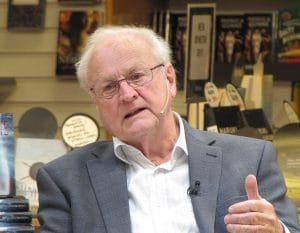A medical doctor, Carlsson was a professor of pharmacology at Sweden’s University of Gothenburg. More specifically, Carlsson was a neuropharmacologist — interested in how neurotransmitters affected the brain and health in general. In 1957, Kathleen Montagu proved that dopamine was present in human brains; Carlsson took that a step farther, disproving the theory that dopamine was merely a precursor for norepinephrine; in fact, it was a distinct — and extremely important — neurotransmitter of its own. He studied it intensively, and discovered that dopamine was a key neurotransmitter in the basal ganglia, a brain area important for movement. His experiments to understand what happens with more or less dopamine and its effect on an animal’s ability to move normally made him realize that dopamine was a key to Parkinson’s disease — and that administering L-dopa (a precursor to dopamine) to Parkinson’s sufferers would help with the symptoms of that disease, and delay their degeneration and death.

His discovery is the still the basis for Parkinson care today — more than 50 years later — and Carlsson was awarded the Nobel Prize in Physiology or Medicine in 2000 in recognition of this advance, shared with two American researchers who also worked on understanding neurotransmitters. But he wasn’t done. In the 1960s, Carlsson realized that illicit drugs had a direct effect on neurotransmitters — cocaine, for instance, blocked dopamine receptors. But he wasn’t all about dopamine: he made extensive progress with serotonin, also, and that work led directly to the development of “selective serotonin reuptake inhibitors” — SSRIs — a new class of drugs that help people suffering from depression and, at the same time, show that depression is largely a brain chemical imbalance problem, not a moral failing. Dr. Carlsson died June 29, at 95.
